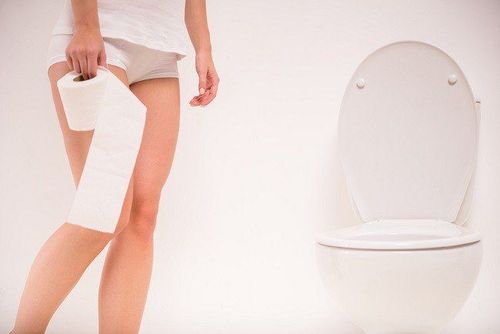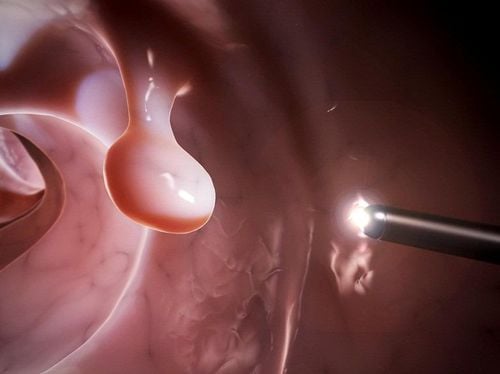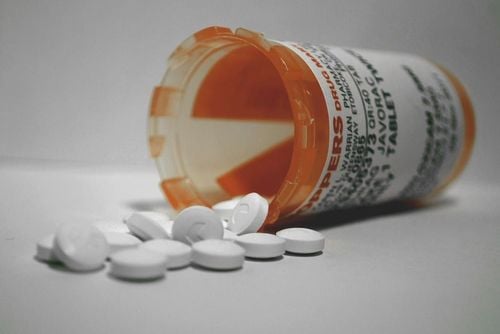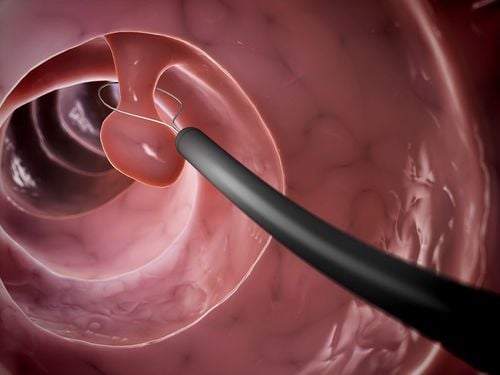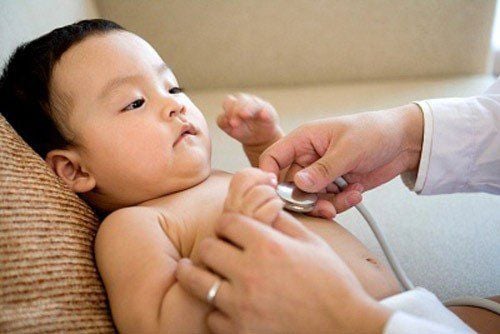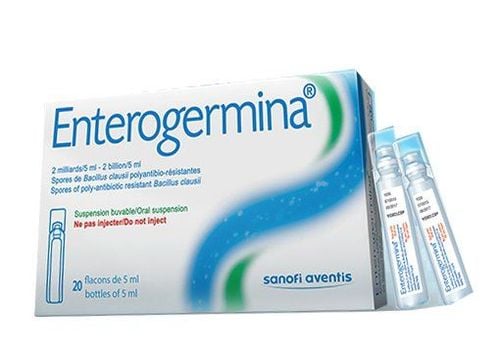This article was professionally consulted by Dr. Võ Thị Thùy Trang - Gastrointestinal Endoscopy Specialist - Department of Outpatient and Internal Medicine - Vinmec Da Nang International General Hospital.
Although colon polyp removal is performed with modern techniques, there is still a risk of recurrence if the patient does not follow a healthy diet and lifestyle.
1. How long should you stay in the hospital after colon polyp removal?
Since the colon polyp removal procedure involves the use of anesthesia, the patient needs a short period of time to wake up. Afterward, the patient can have light food after the endoscopy and is allowed to rest before being discharged the same day. For safety, patients should not drive vehicles after the procedure or surgery.
For cases involving malignant colon polyps, those with three or more polyps, those larger than 1 cm, or other rare conditions, the patient may need to stay in the hospital for at least 1 to 2 days for monitoring. The purpose of hospitalization is to perform diagnostic biopsies and monitor the development of the colon polyp as well as any current complications. However, patients need not worry as the hospital stay is short, and health recovery usually takes about 2 weeks to fully recover.
2. Post-Operative Care After Colon Polyp Removal
To promote recovery and prevent colon polyp recurrence, patients should follow these instructions after being discharged:
- After the endoscopy and anesthesia procedure, patients should not drive and should have a family member accompany them.
- Take medications exactly as prescribed by the doctor.
- After polyp removal, patients should rest, avoid heavy work, and refrain from excessive physical activity.
- Eat soft, easy-to-digest foods (it is recommended to eat pureed rice porridge with vegetables for the first 3 days), then divide meals into 5-6 smaller meals per day.
- Divide meals into smaller portions to aid digestion.
- Drink plenty of water, and eat more fiber-rich vegetables to help soften stool and avoid constipation.
- Avoid straining during bowel movements.
- Avoid spicy, hot foods, and greasy foods.
- Do not use medications that affect blood function, such as aspirin, ibuprofen, or naproxen, for 2 weeks after the procedure unless advised by the doctor. Only use pain relievers like Acetaminophen / Paracetamol.
- In case of pain, absolutely avoid using medications that affect blood function such as aspirin or pain relievers containing ibuprofen or naproxen within 2 weeks after the procedure. Only use Acetaminophen / Paracetamol for pain relief.
- If you have colon polyps, a colonoscopy should be performed once a year. Family members of the patient should also have a colonoscopy checkup if over 50 years old.
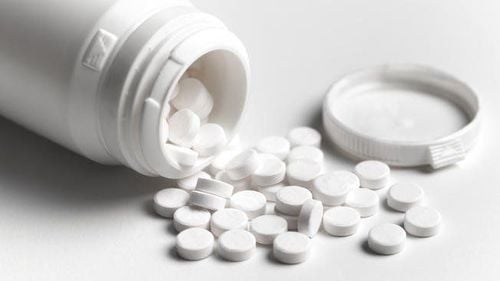
3. What should you eat after colon polyp removal?
Immediately after undergoing colon polyp removal, you should not eat any solid foods. Instead, start by drinking a few spoonfuls of water every 1-2 hours. Even on the second or third day, you should avoid eating and only gradually increase your water intake.
Only after this initial period should you begin providing your body with energy through drinks like milk and soft foods. Suitable foods during this time include soft, well-cooked stews, soups, or broths. It is best to divide meals into smaller portions to prevent excessive strain on the colon, which will help the wound heal faster.
After a few weeks, you can start eating porridge, noodles, steamed buns, etc. During this period, focus on eating more solid foods with moderate amounts of protein and low fiber content, eating smaller portions and dividing them into several meals.
Pay attention to limit or avoid certain foods while having colon polyps and after the removal procedure, such as:
- Foods with strong seasonings like sour, spicy, and those containing preservatives.
- Alcoholic beverages like wine, beer, coffee, tea, and other drinks containing caffeine.
- Fried foods, foods with a lot of oil, and spicy, hard-to-digest foods.
- Animal fats.
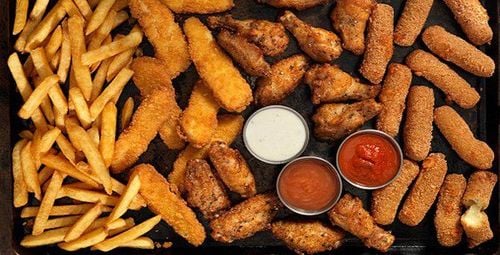
4. Abnormal symptoms after colon polyp removal
Typically, after colon polyp removal, the patient's health will gradually recover. For small polyps, the cut area will heal within a week. For larger polyps, if there was a ligature around the base of the polyp before removal, the cut or clip will naturally detach from the incision within 5-7 days after the procedure. However, if you experience any abnormal symptoms such as:
- Abdominal pain, bleeding, or excessive discharge from the rectum.
- Fever, dizziness, nausea, vomiting.
- Swelling around the anus.
- Coughing, shortness of breath, or chest tightness.
- Bloating or abdominal rigidity.
- Passing stool with blood or black-colored stools.
You should immediately visit a healthcare facility with gastrointestinal expertise to receive timely treatment.
Specialist Doctor I Võ Thị Thùy Trang is trained in gastrointestinal, hepatobiliary, and pancreatic medicine as well as gastrointestinal endoscopy. She continuously updates her knowledge and receives advanced endoscopy training from professors and specialists from Switzerland and Japan. She also participates in many domestic and international gastroenterology and endoscopy conferences.
To arrange an appointment, please call HOTLINE or make your reservation directly HERE. You may also download the MyVinmec app to schedule appointments faster and manage your reservations more conveniently.
Article referenced source: Pasteur Institute
To arrange an appointment, please call HOTLINE or make your reservation directly HERE. You may also download the MyVinmec app to schedule appointments faster and manage your reservations more conveniently.

